There can be your advertisement
300x150
Before and After: How We Transformed a 1940s House Without a Designer
Isabella Simmons, editor at Remodelista, shared her experience: she moved with her family into a 1940s-built house and started a major renovation. To say the least, nothing had been updated for decades, so there was plenty of work to do.
At the time of moving in, Isabella had a newborn son and a daughter who was just four years old. That made the task even more challenging.
Living room before renovation. After renovation
When purchasing the house, it was in terrible condition: Isabella's husband Brandon’s parents even refused to enter the interior. Everything was cluttered with items from previous owners and smelled of mold.
The family hired a construction team and got to work. Because the kids had no experience, the experiment was not easy, and it took nearly a year to complete.
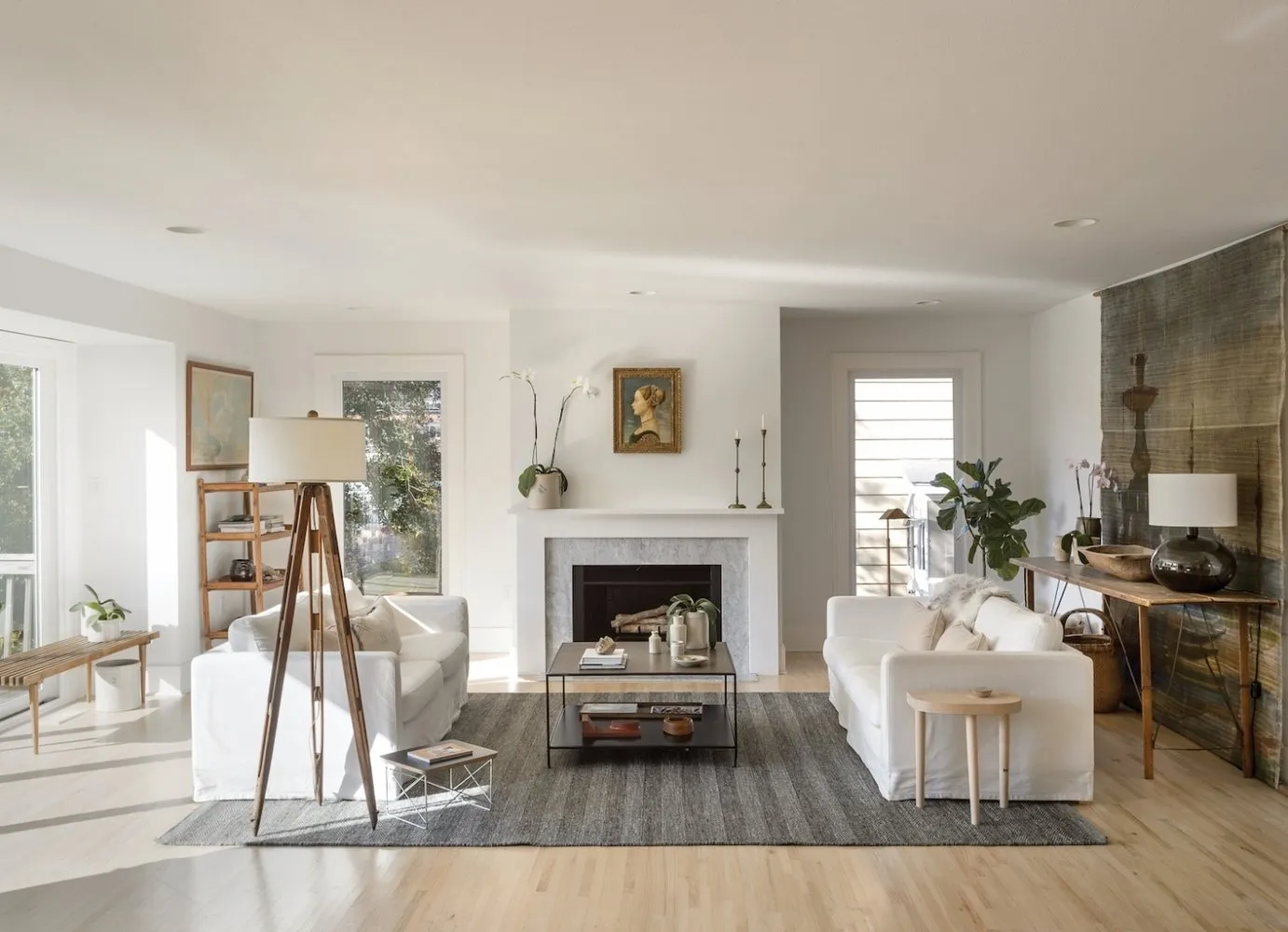
Isabella liked minimalist Scandinavian interiors, so she tried to recreate something similar at home. She painted the walls white and decided to leave the floor as is. The only issue was the shade — red oak. So, she had to bleach the floor three times to achieve the right tone.
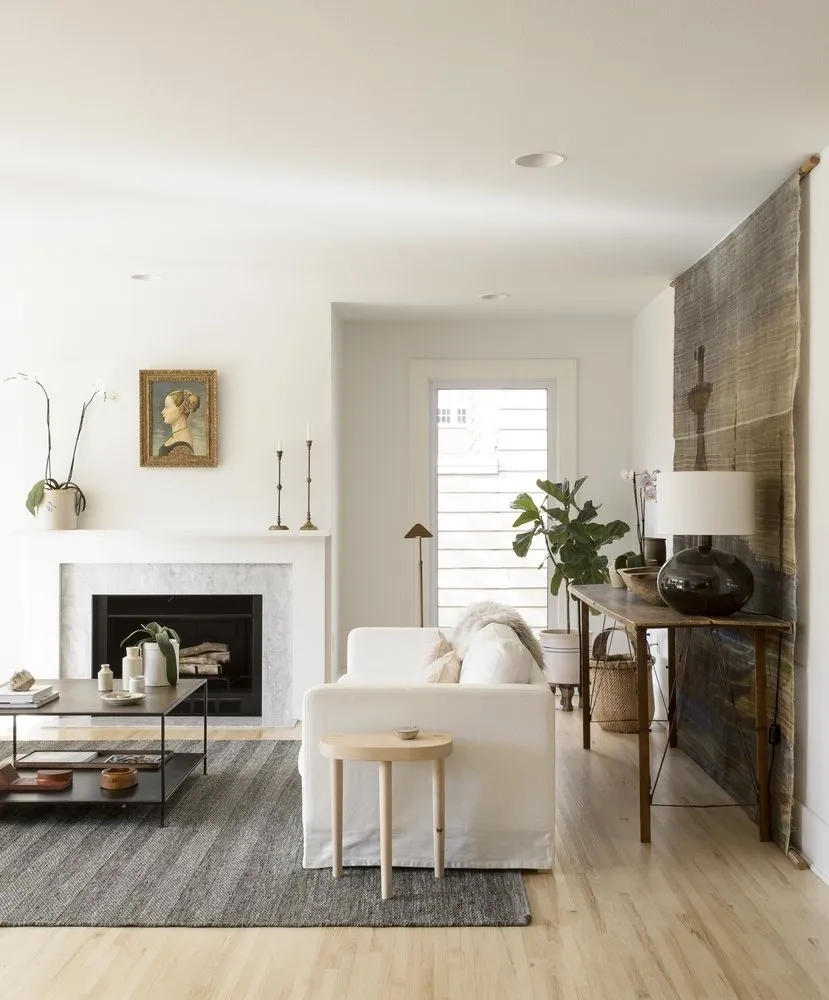
The living room was kept open-plan — there's a lot of light thanks to panoramic windows and glass French doors leading straight into the yard.
Most of the furniture was sanded, repainted, and reupholstered. For example, the steel coffee table was originally here; they only stripped off the old paint layer. Decorative items were found at flea markets and antique shops. Some were made by herself: for example, decorative pillows on the sofa.
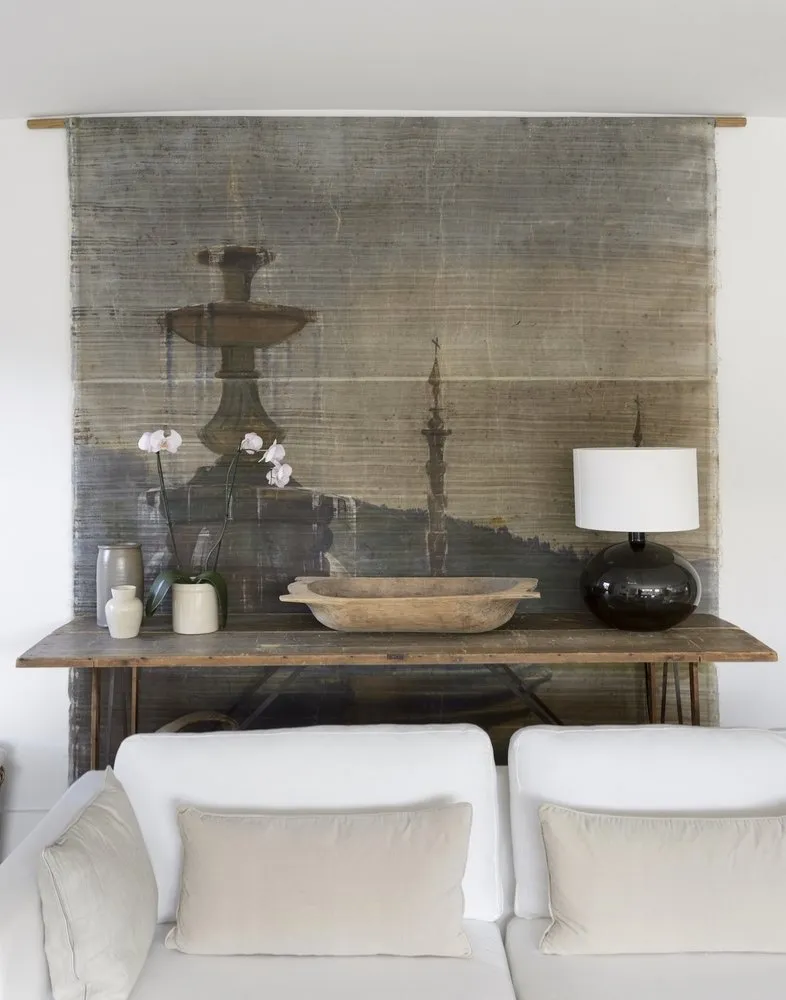
In the dining area, they made a small reconfiguration: removed several partitions and connected the space with the library, living room, and kitchen.
The gilded vintage mirror (visible in the photo) was found at a sale in Chicago. It was in terrible shape: the bottom had rotted, and it had to be restored. The dining table was also found in one of Chicago's attics and brought back to order. The chandelier above the table was made by the girl herself.
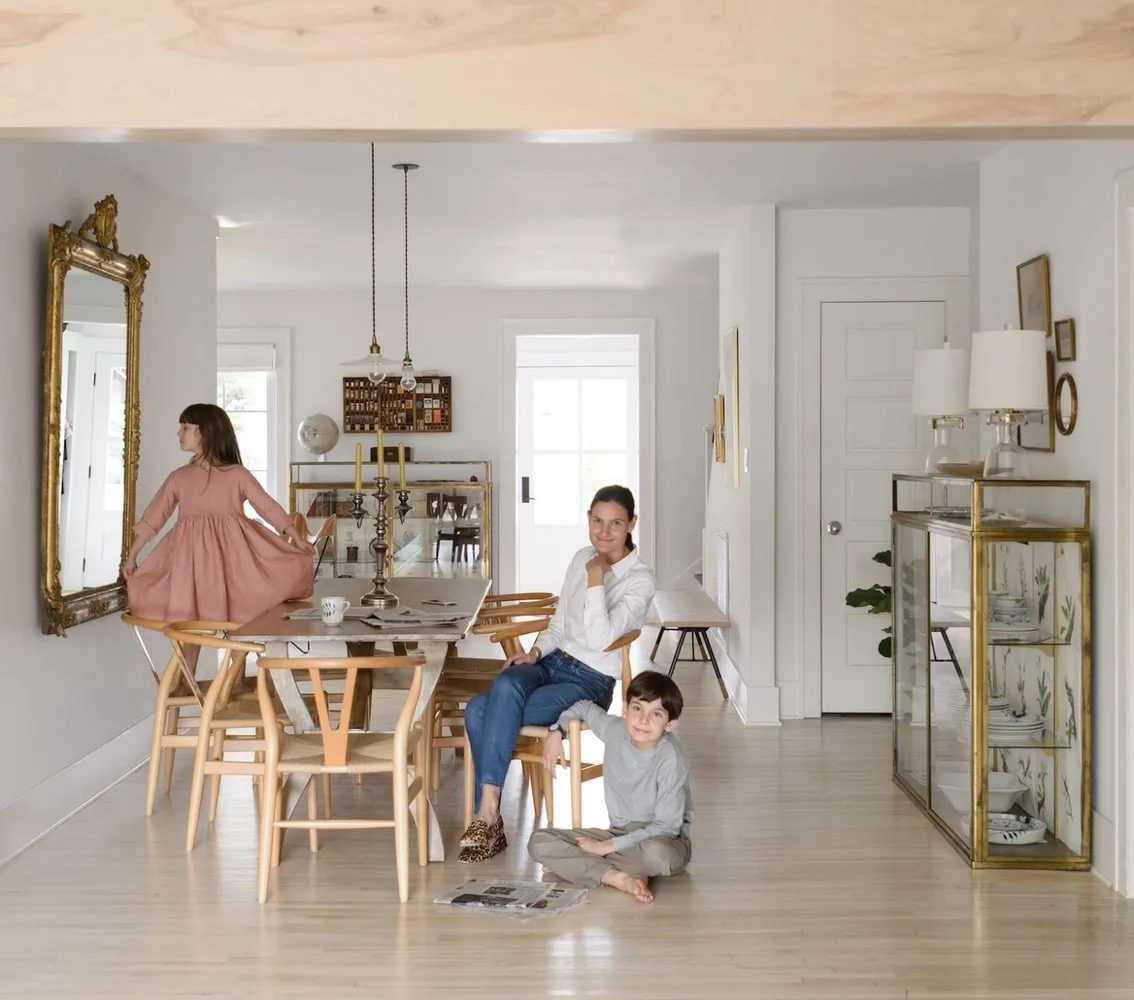
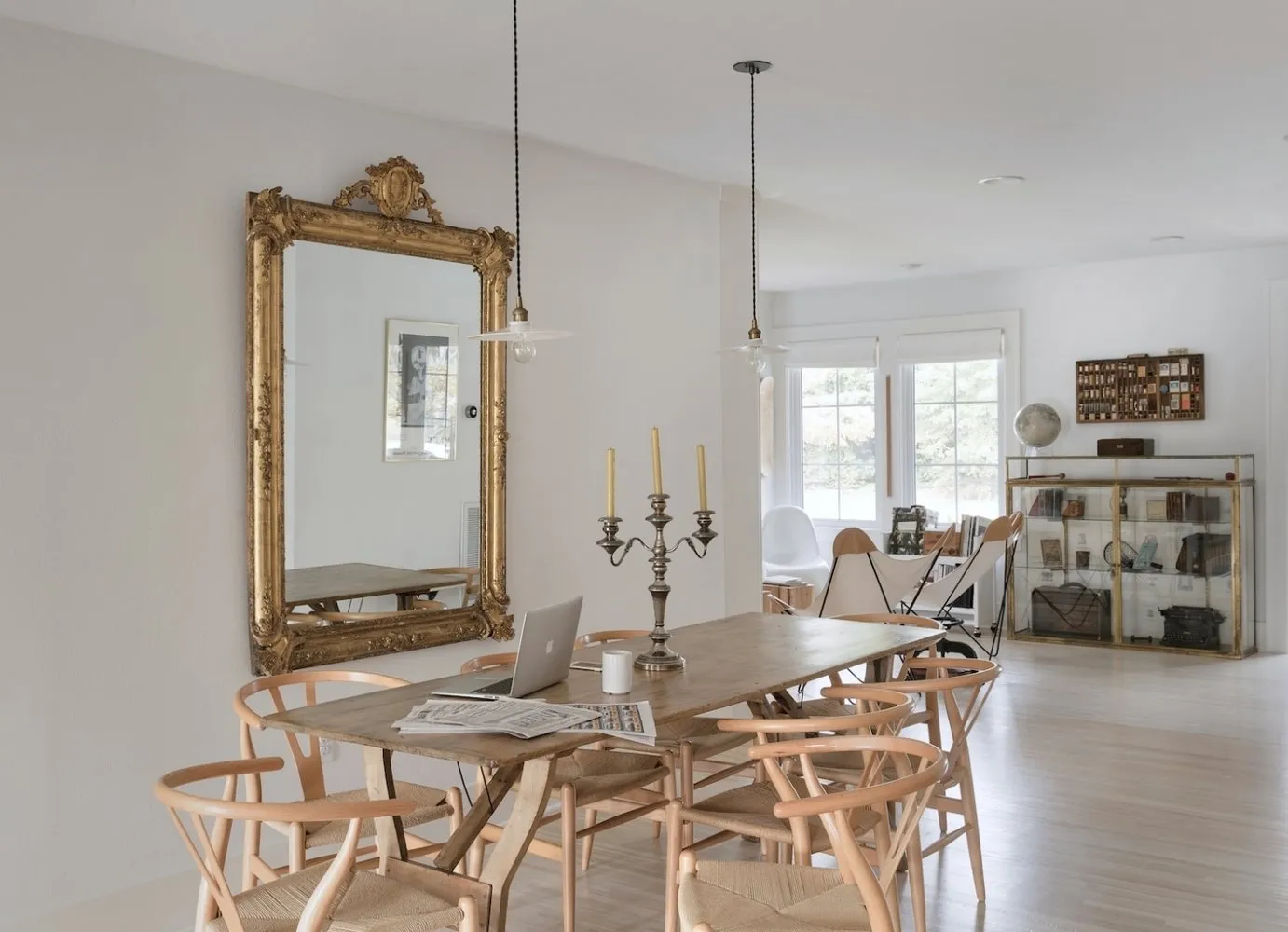
The kitchen was decorated in a black-and-white palette, and even the dishes were chosen to match. Closed storage systems were replaced with open shelves — they give the interior a sense of airiness.
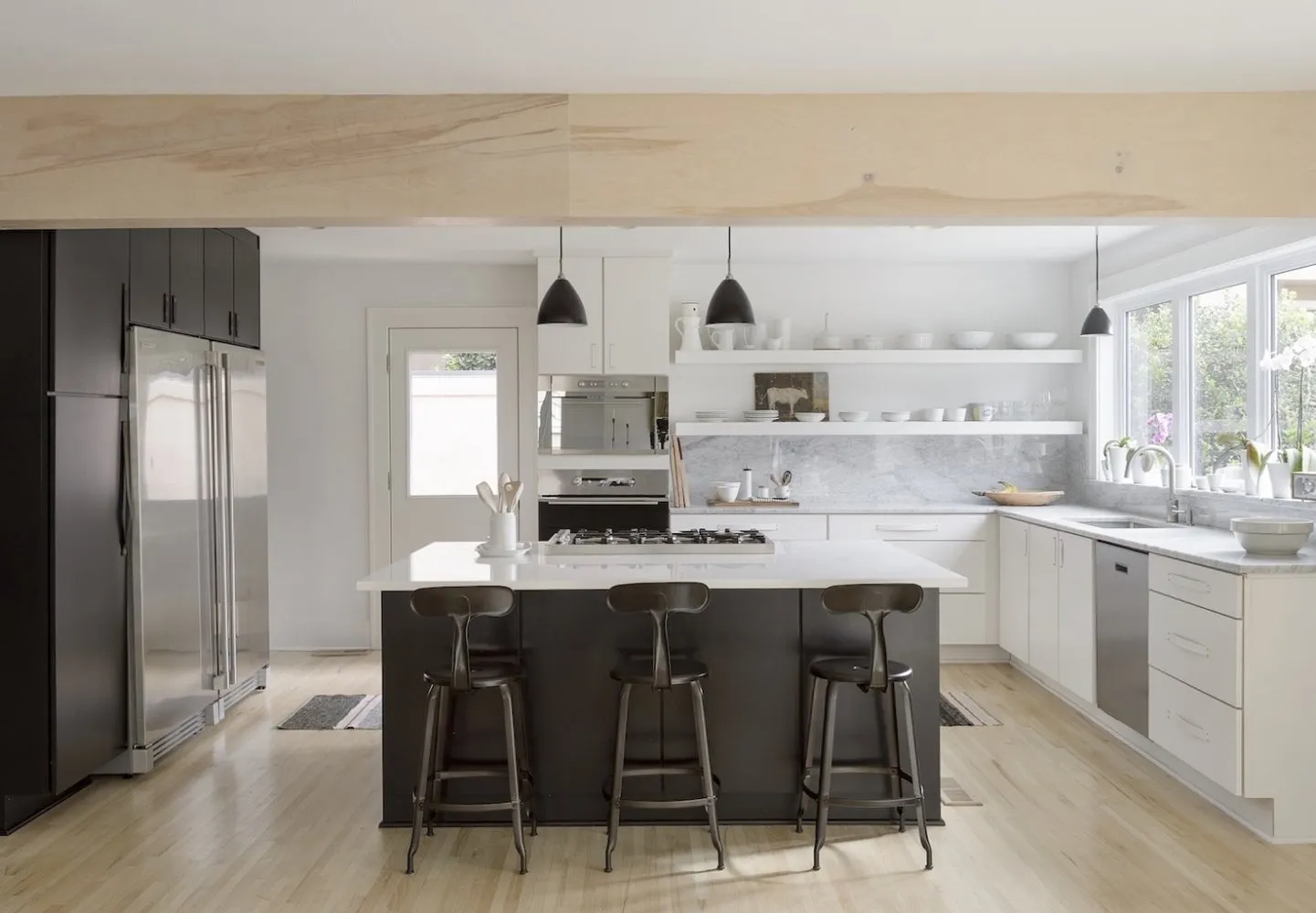
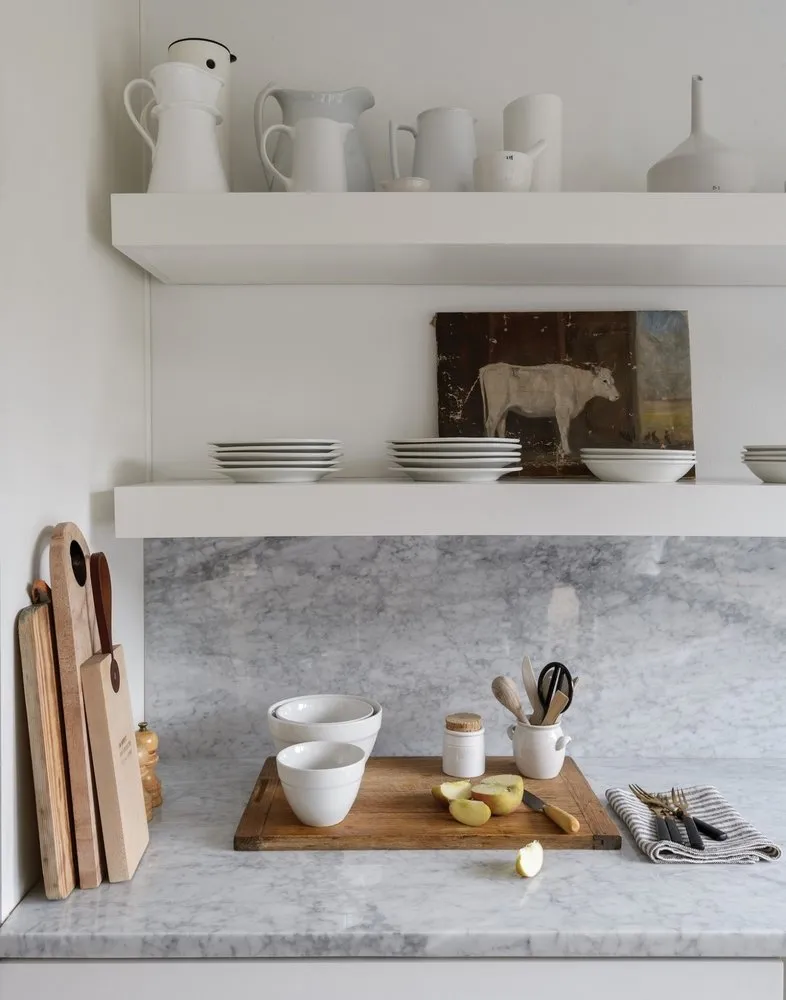
One of the rooms was turned into a library and fitted with floor-to-ceiling shelves to avoid filling all the space with bookcases.
Library interior before renovation. After renovation

In the bedroom, Isabella bought a canopy bed and asked a carpenter to make a new headboard. Brandon’s mother sewed the curtains, while the rods were made from copper pipes.
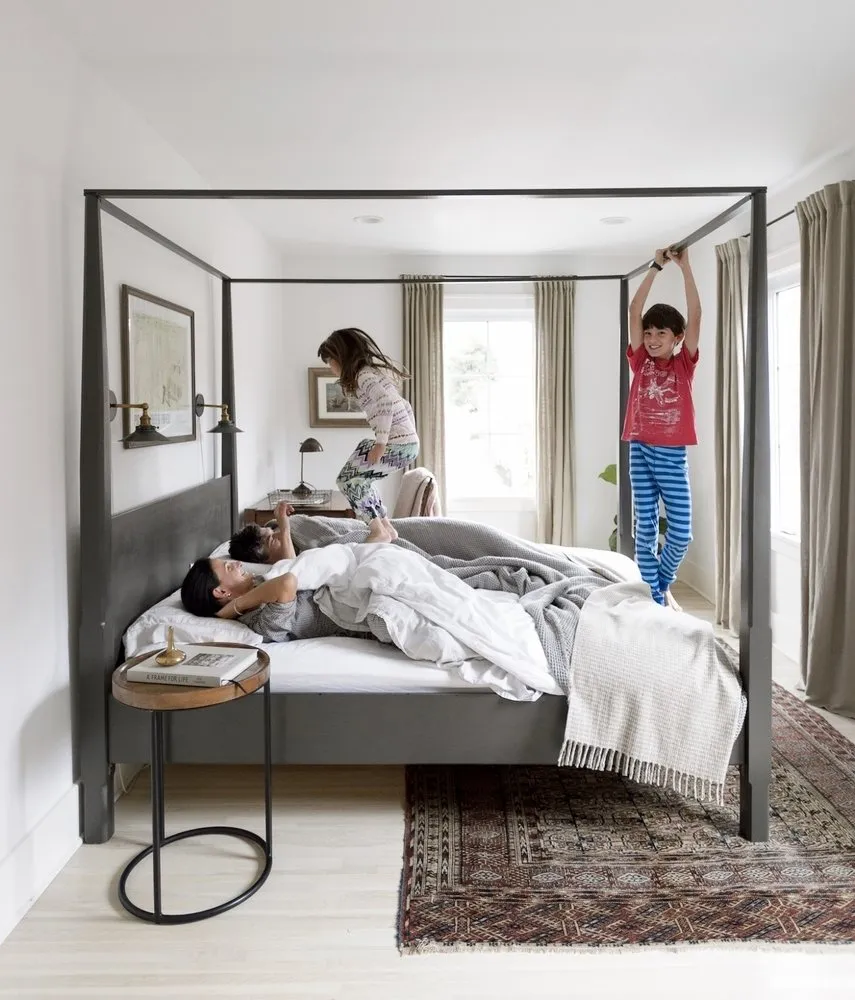
This is a vintage Swedish sofa made in the 19th century. It fit perfectly into the child's room.
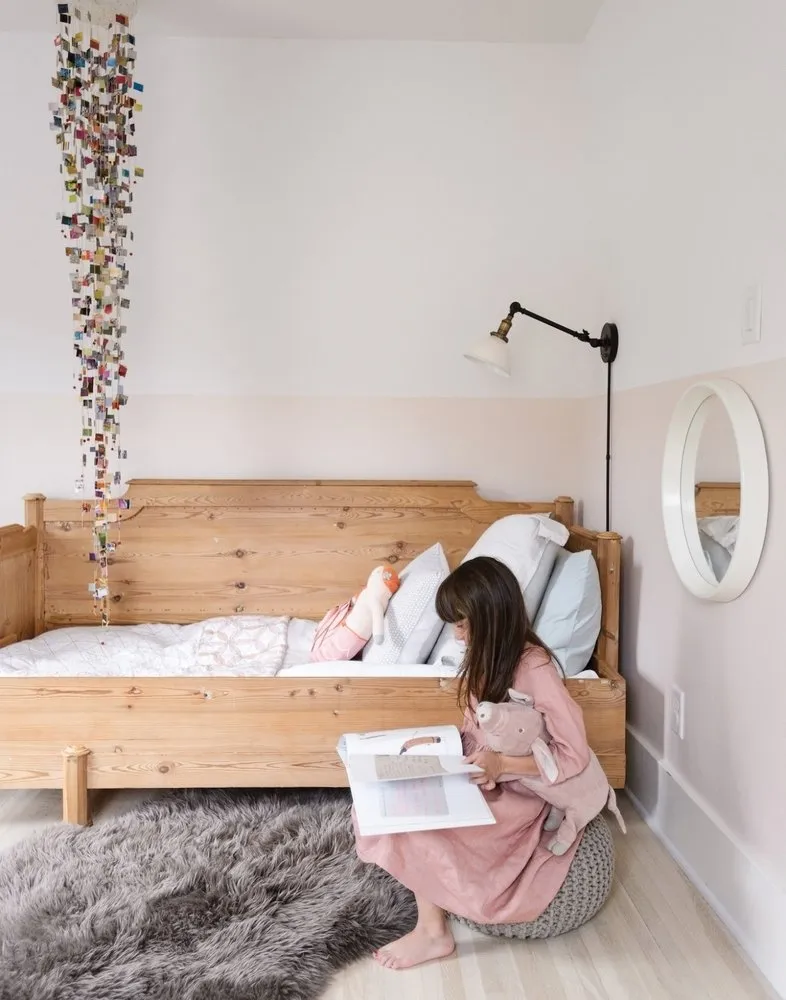
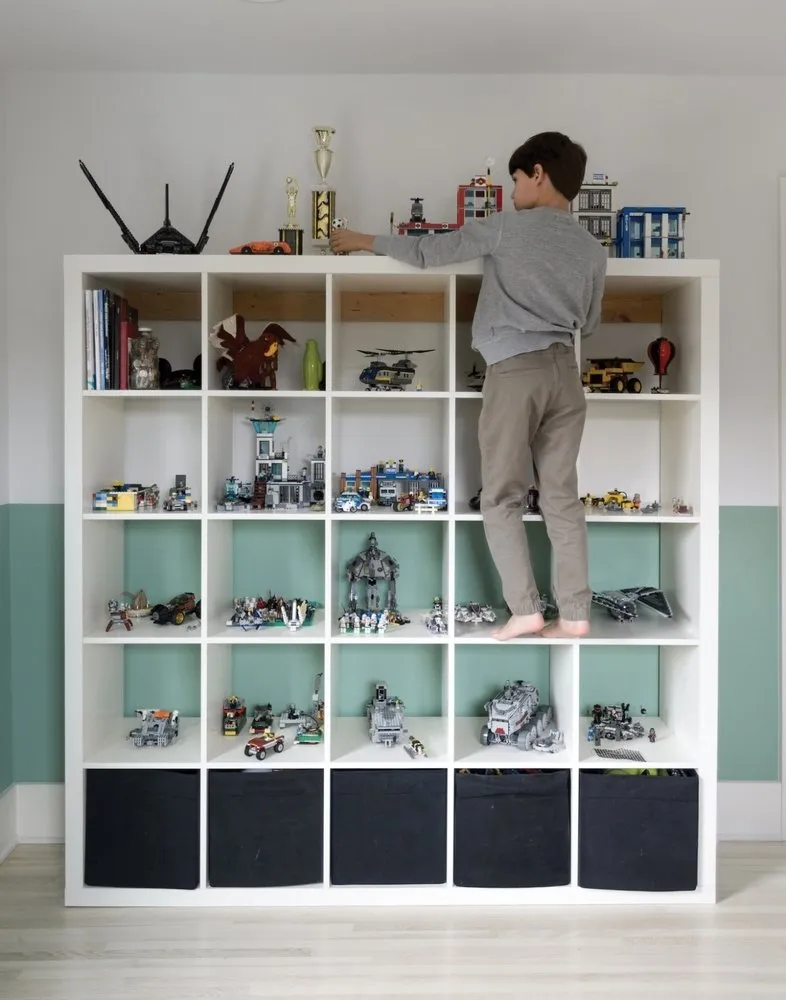
The attic was converted into Brandon’s home office, adding another 42 square feet to the living space. It required hard work and even large panoramic windows to let in natural light.
Attic interior before renovation. After renovation

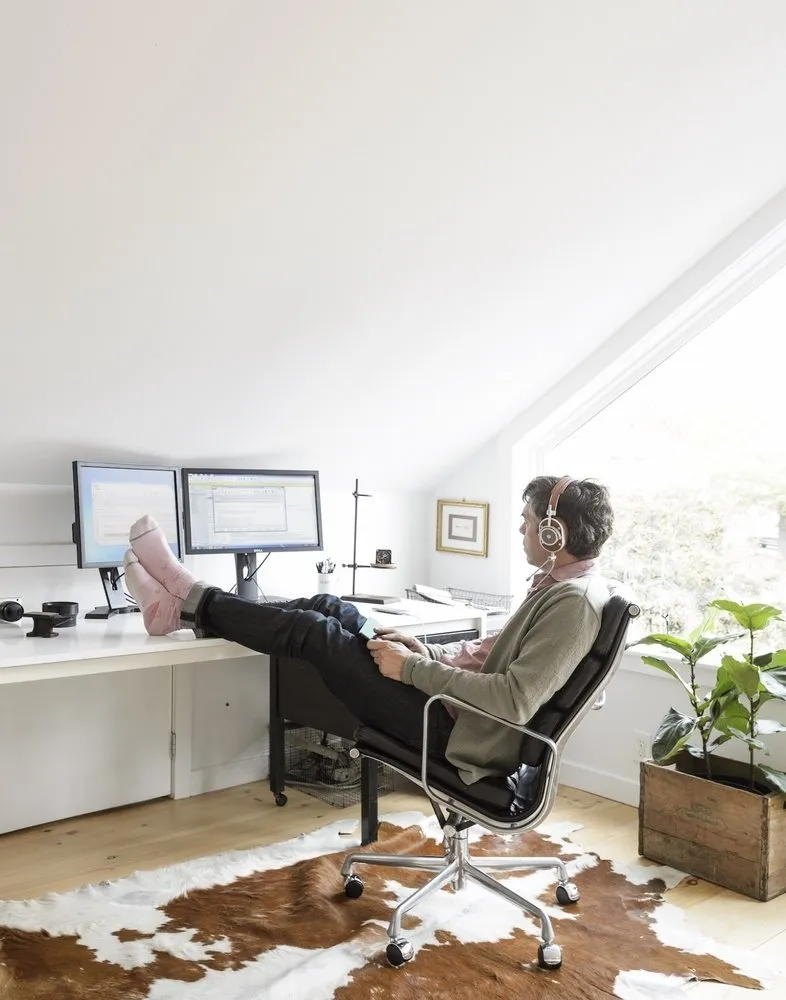
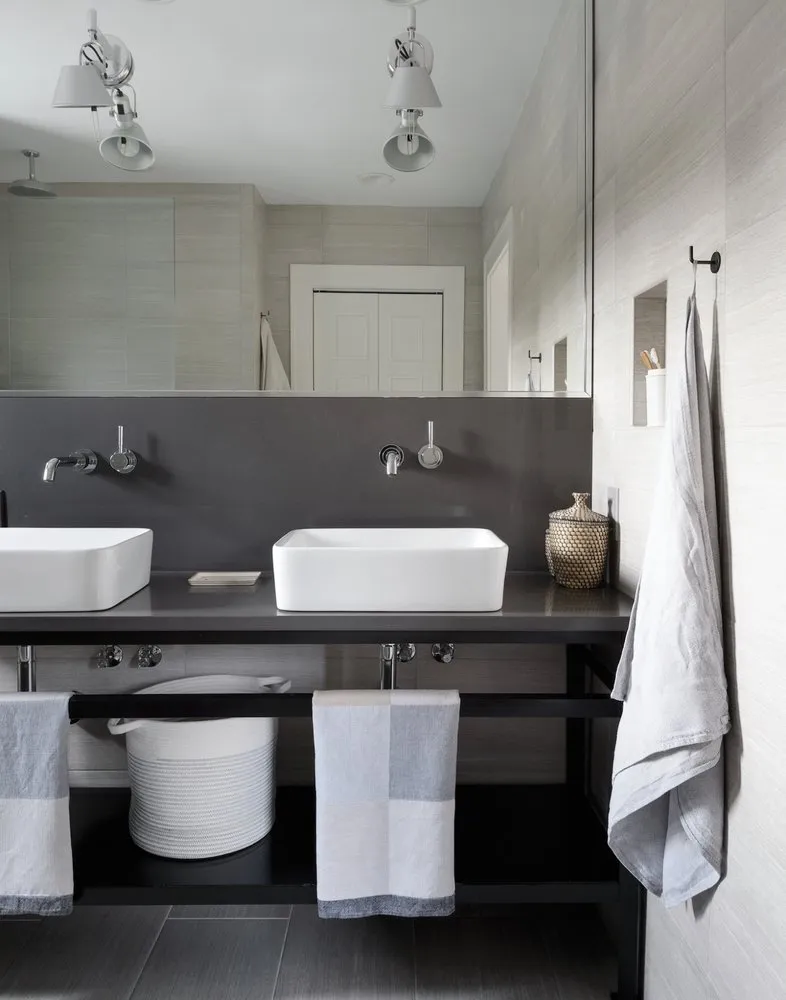
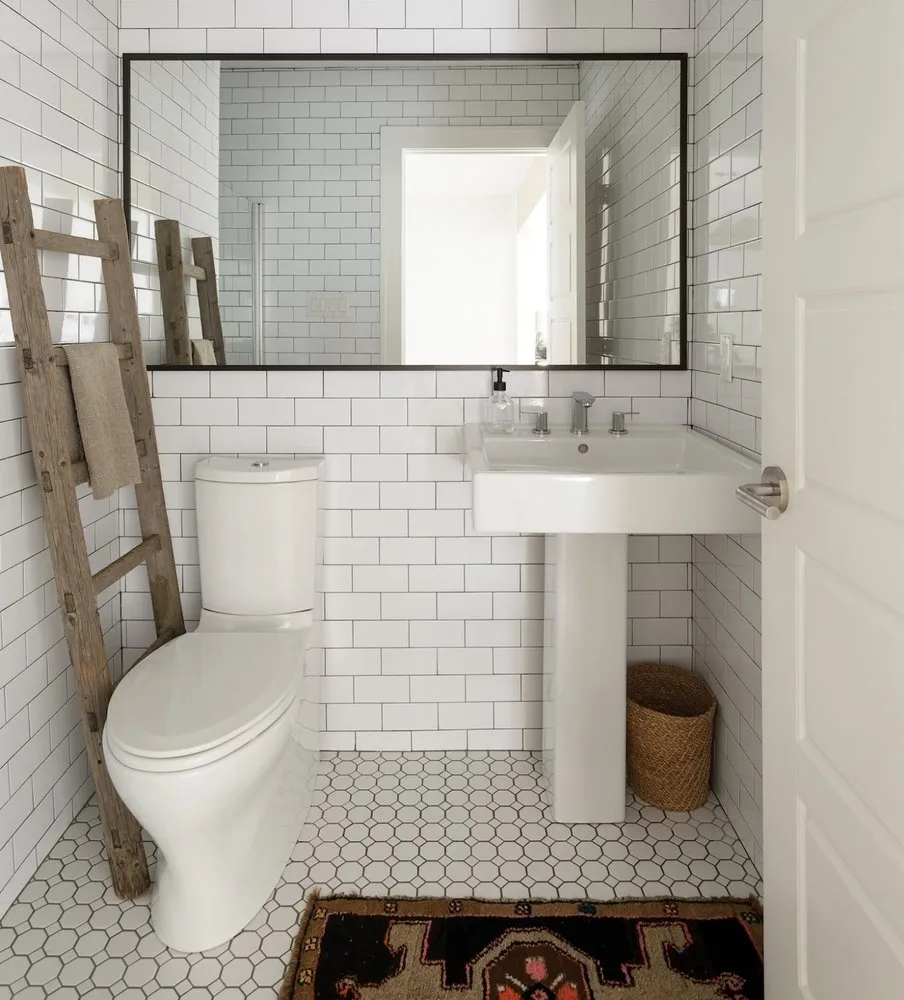
The house facade was changed: it was clad in siding, a canopy was added over the porch, the roof was replaced, and outdoor lighting was installed. The yard was also transformed to match the house.
House facade before renovation. After renovation
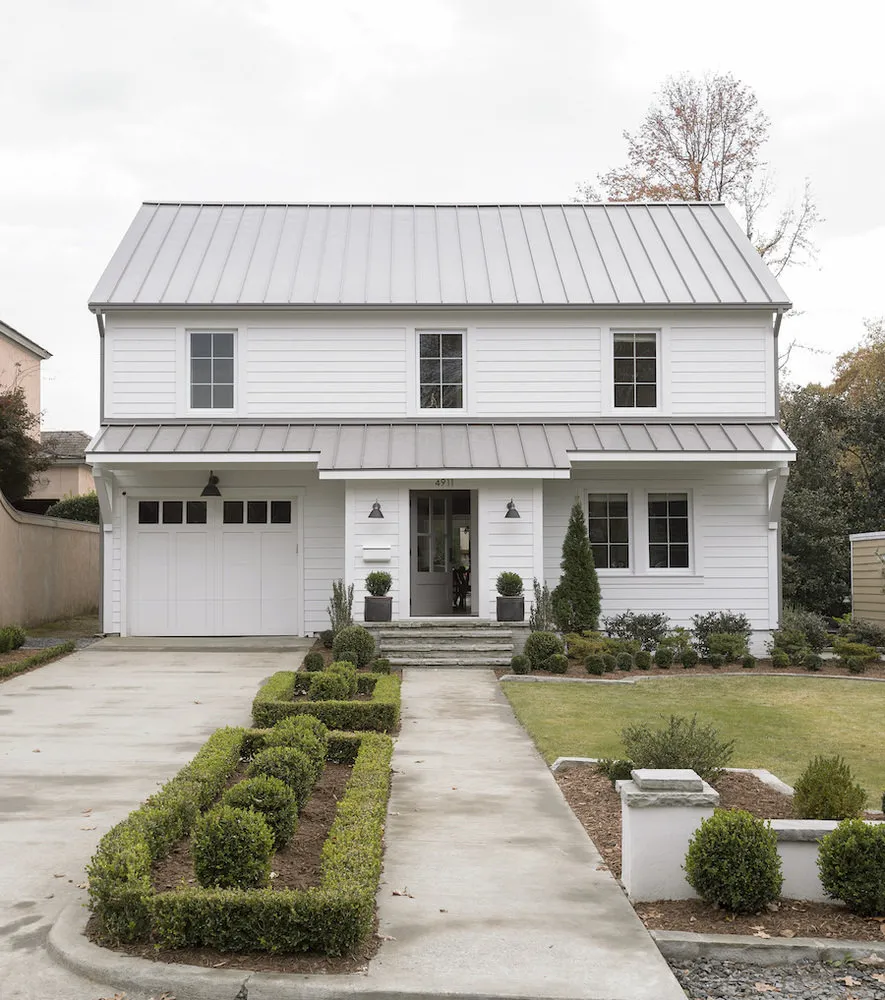
More articles:
 5 Cool Designer Inventions from Kickstarter
5 Cool Designer Inventions from Kickstarter Ants, Mosquitoes and Wasps: What Irritates Us on the Country Estate and How to Deal with It
Ants, Mosquitoes and Wasps: What Irritates Us on the Country Estate and How to Deal with It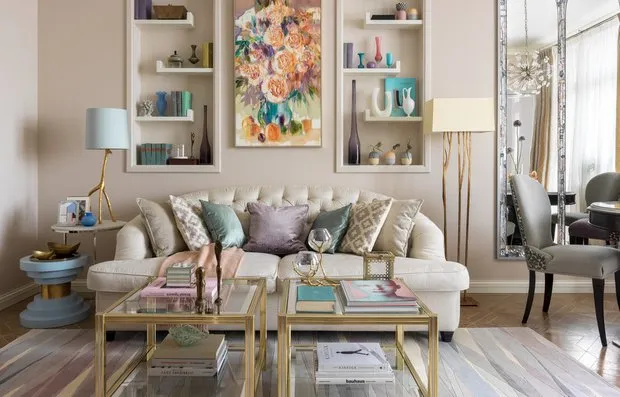 107 Common Mistakes in Renovation That Everyone Makes
107 Common Mistakes in Renovation That Everyone Makes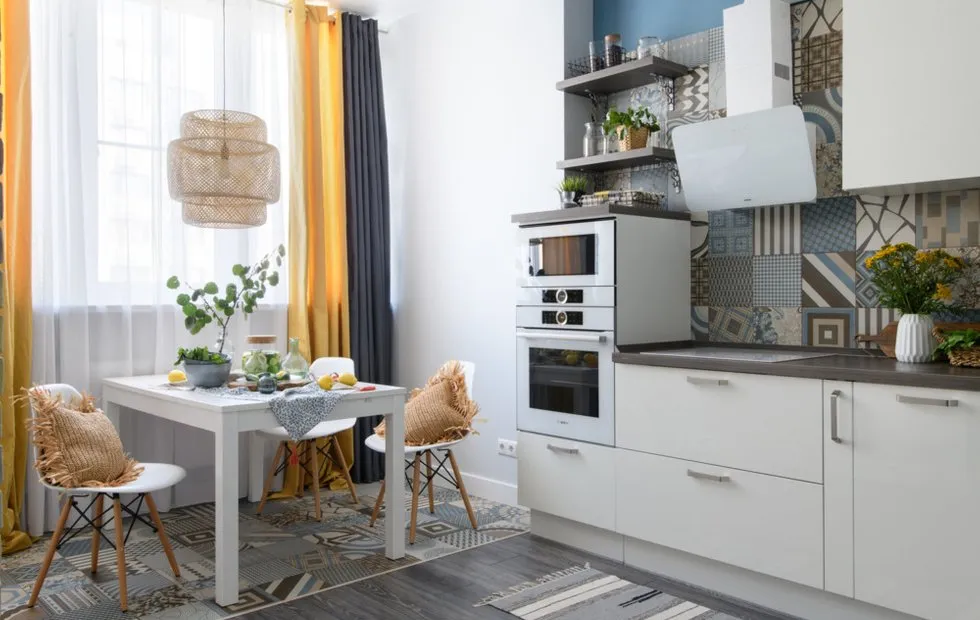 How Did They Turn a Studio into a Two-Room Apartment?
How Did They Turn a Studio into a Two-Room Apartment?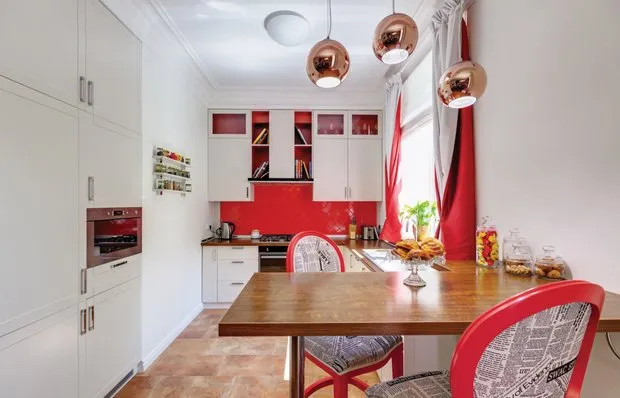 10 Kitchens for Capricious Individualists
10 Kitchens for Capricious Individualists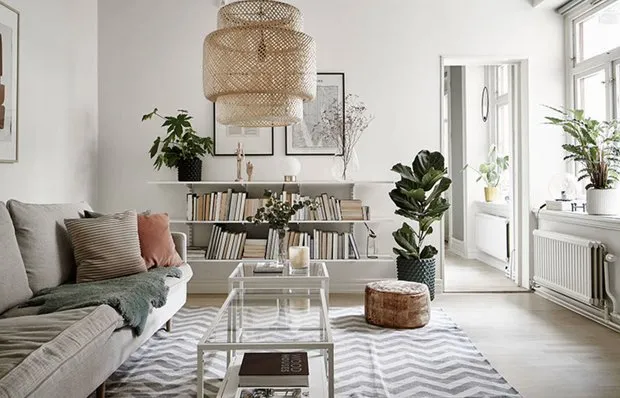 How to Diversify a White Interior: Example from Sweden
How to Diversify a White Interior: Example from Sweden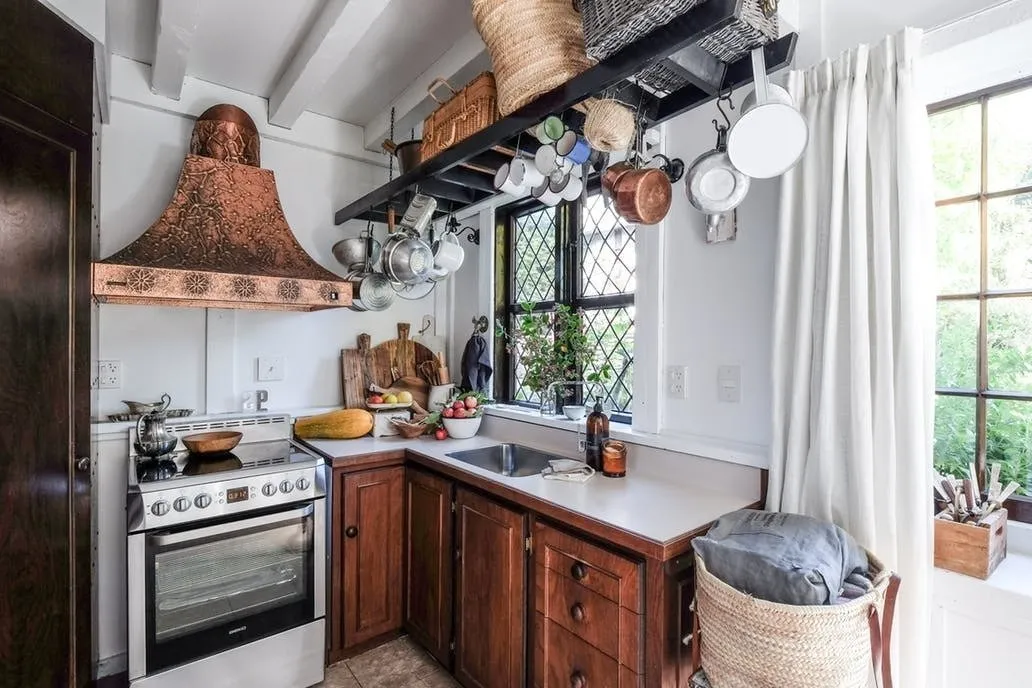 Kitchen on the Dacha: 7 Ideas for Decoration
Kitchen on the Dacha: 7 Ideas for Decoration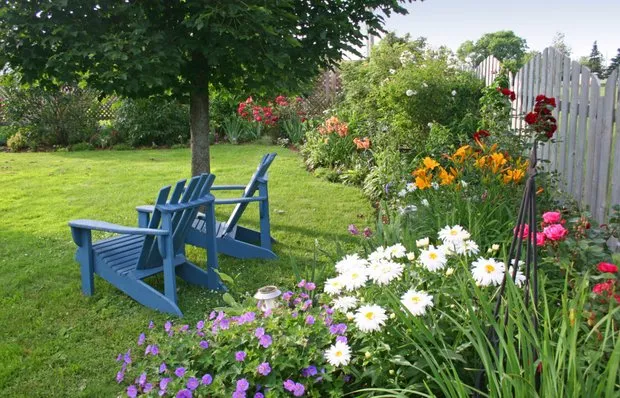 Ideal Lawn for the Dacha: Instructions + Tips
Ideal Lawn for the Dacha: Instructions + Tips